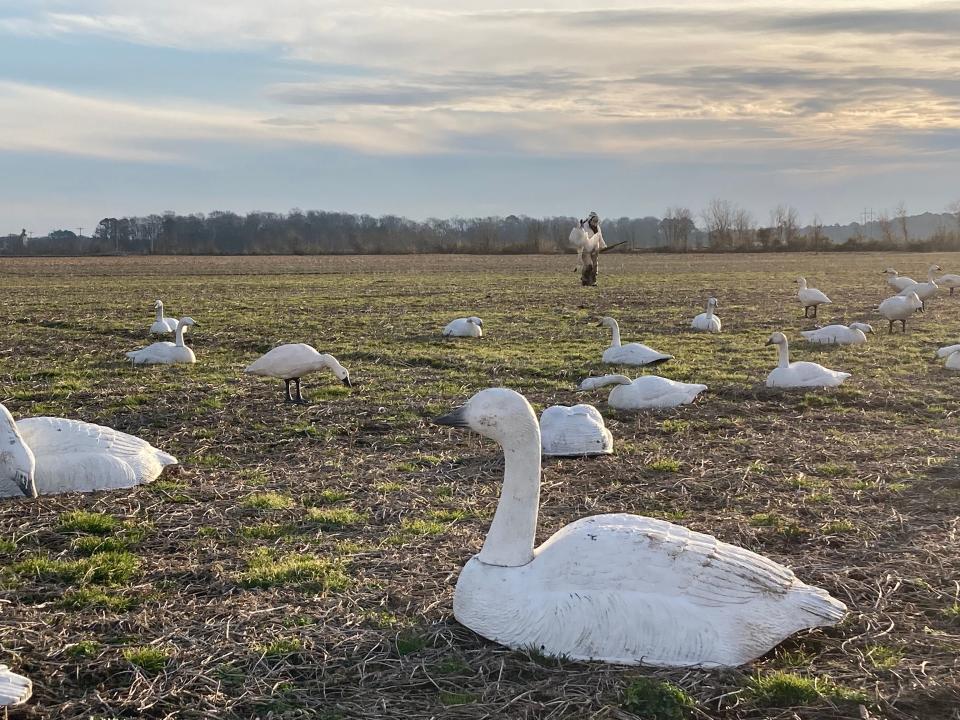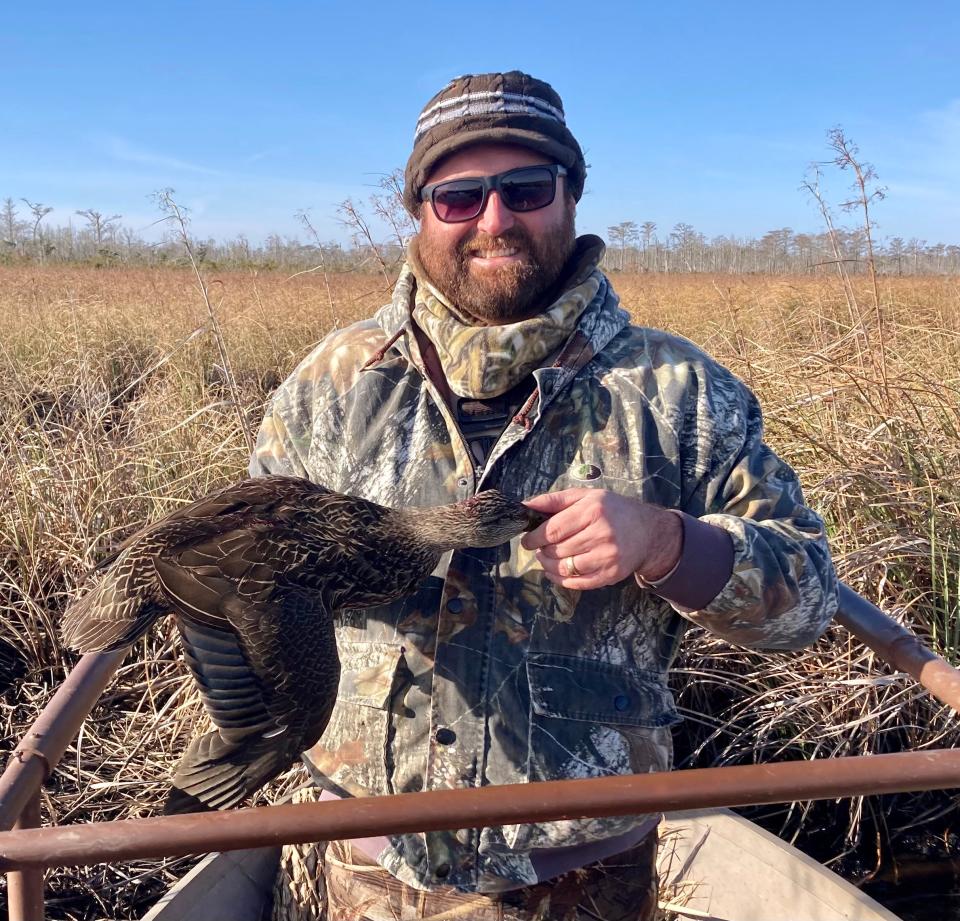For waterfowling, North Carolina's Outer Banks are unmatched | Ian Nance on hunting

North Carolina's Outer Banks is steeped in pirate history. And true to form, our boat’s captain, a wild man named Moe, maneuvered the skiff through the winding, starlit creeks under full throttle but without navigation lights, concerned that unnatural illumination might unveil his treasured honey-hole.
The Lost Colony of Roanoke was located in nearby Manteo, and fear for me that morning was suffering a similar fate, vanishing in the chilled brackish waters of Croatan Sound.
When the vessel finally stopped, it was only to retrieve an unmanned mudboat that’d been stashed in the reeds, necessary to plow further into the backwaters. Muskrats splashed from the banks as the long-tailed motor groaned us forward to a non-descript bay.
All worries were scuttled early, however, as Moe had indeed guided us safely to the X on the map. At first light, a flight of green-winged teal buzzed overhead and splashed into the decoys. A few hours later, our mixed bag of teal, mallards and my first black duck were piled on the deck as we puttered toward a nearby wooden blind for breakfast and a beer.
In conversations with others, North Carolina isn’t typically discussed as a premier waterfowling destination, but the Outer Banks provides an unheralded abundance and variety of ducks, geese and swans. These barrier islands separate the Atlantic from the Albemarle-Pamlico Estuarine System, almost 10,000 miles of river and stream waters that merge with the tidal flow of the ocean. And with prominent agricultural uses scattered throughout the region, these intertwined ecosystems cater to a diversity of wintering waterfowl.
Freshwater fishing Plenty of bass are biting in Polk, schoolies and some trophies alike
Florida public land permits June 15 is the deadline for hunters to apply
Years of anticipation Axis deer hunt finally happened
Black ducks, for example, are prevalent as the estuary provides critical breeding habitat. Teal, wood ducks, mallards and other dabbling ducks inhabit the marshes and swamps. Rafting diving ducks and sea ducks, such as eiders, are common in the open waters, often shot from the ubiquitous elevated blinds moored in the sounds, easily seen from the highways.
Brant geese are pursued here, while various subspecies of Canada geese and snow geese are hunted in agriculture fields. And if you’re curious where the pintail hang each winter, I'll report that they camp out in droves at the Pea Island National Wildlife Refuge south of Oregon Inlet, feeding with the massive tundra swans.
Though Moe's hunt was a welcome surprise gifted from a dear friend, swans were my primary purpose for visiting in January 2022. It is estimated that 75% of tundra swans winter near the Outer Banks and hunting them has been a tradition here for generations, especially around Lake Mattamuskeet and Currituck. Strictly controlled by a limited permit system, I was successful filling my tag near Elizabeth City, cramped into an irrigation ditch with 11 strangers while the guide called and flagged in these elegant birds, a truly unique waterfowl hunt.

For the travelling hunter without familiarity of the ample waterways, a guide is necessary. Fortunately, several local outfitters will book hunters at reasonable rates. Fourth Generation Outfitters hosted my swan adventure, and they'll certainly accommodate hunts for any of the waterfowl species listed above.
So, if you’re a waterfowler seeking a unique species or just seeking adventure in a wild place, hoist your black flag and set sail for the Outer Banks.
(For more information on NC waterfowl hunts, please visit www.ncwildlife.org/Hunting/Seasons-Limits/Waterfowl-Seasons-Limits)
This article originally appeared on The Ledger: North Carolina's Outer Banks offer unrivaled waterfowling experience

